THE OLYMPIANS – Gods of the Greek Mythology
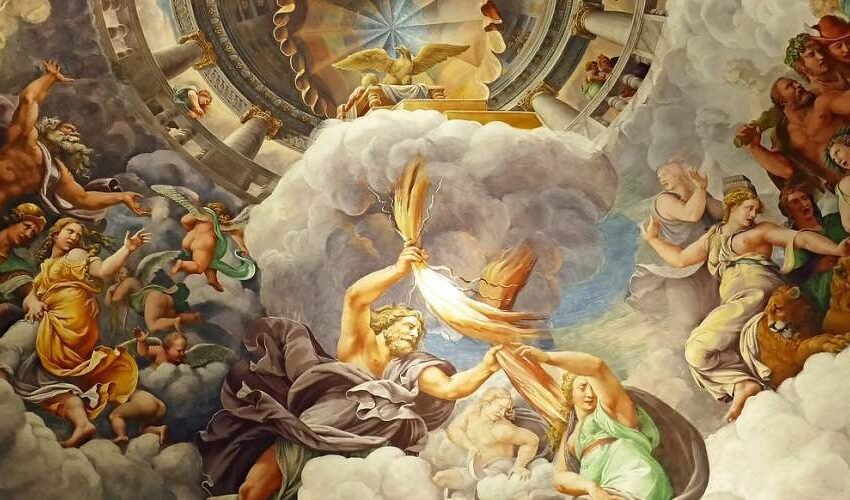
Greek mythology has been one of the most prominent topics of history to read and research about. Numerous tales, theories, and conclusions have been drawn from Greek mythology which captured the interest of many historians. Greece has been known to be culturally and historically rich for ages. The importance of the language Greek and its mythology is a wonder to many. The Greek mythology traditionally has 12 gods residing in Mount Olympus in Athens. All 12 of them have acquired their names which are in some way attached to Mount Olympus and are collectively called the Olympians. Every one of these gods has a special power to create, destroy, invent, and destruct. They vary in all aspects but are known to overlook the world unanimously. Let us now discuss these gods in detail:
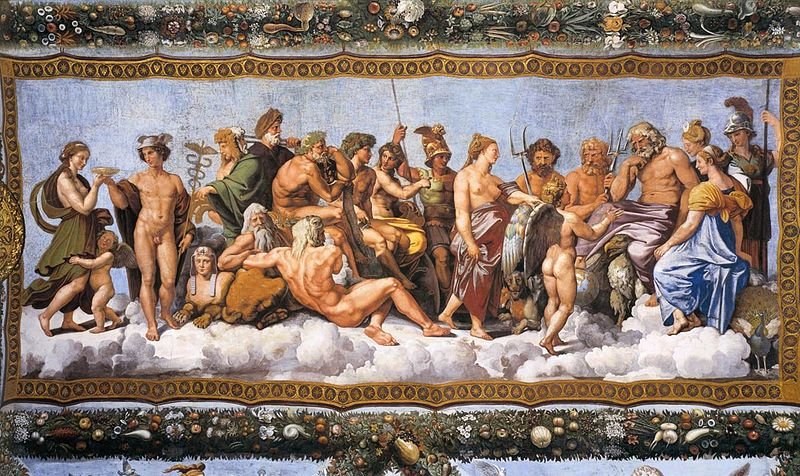
Zeus is the king of the gods in Greek mythology and the ruler of Mount Olympus. He is the god of the sky, thunder, and lightning, often depicted wielding a thunderbolt as his weapon. As the son of the Titans Cronus and Rhea, Zeus overthrew his father to free his siblings and establish the Olympian pantheon. Zeus is known for his supreme authority, justice, and cosmic order protection. Key symbols associated with Zeus include the eagle, the oak tree, and the thunderbolt.
Poseidon is the god of the sea, earthquakes, and horses in Greek mythology. He is the brother of Zeus and Hades. Often depicted with a trident, his primary weapon and symbol of power, Poseidon rules over all aquatic realms and is revered as the protector of sailors and fishermen. As a son of the Titans Cronus and Rhea, Poseidon played a key role in the overthrow of Cronus, helping to establish the reign of the Olympian gods.
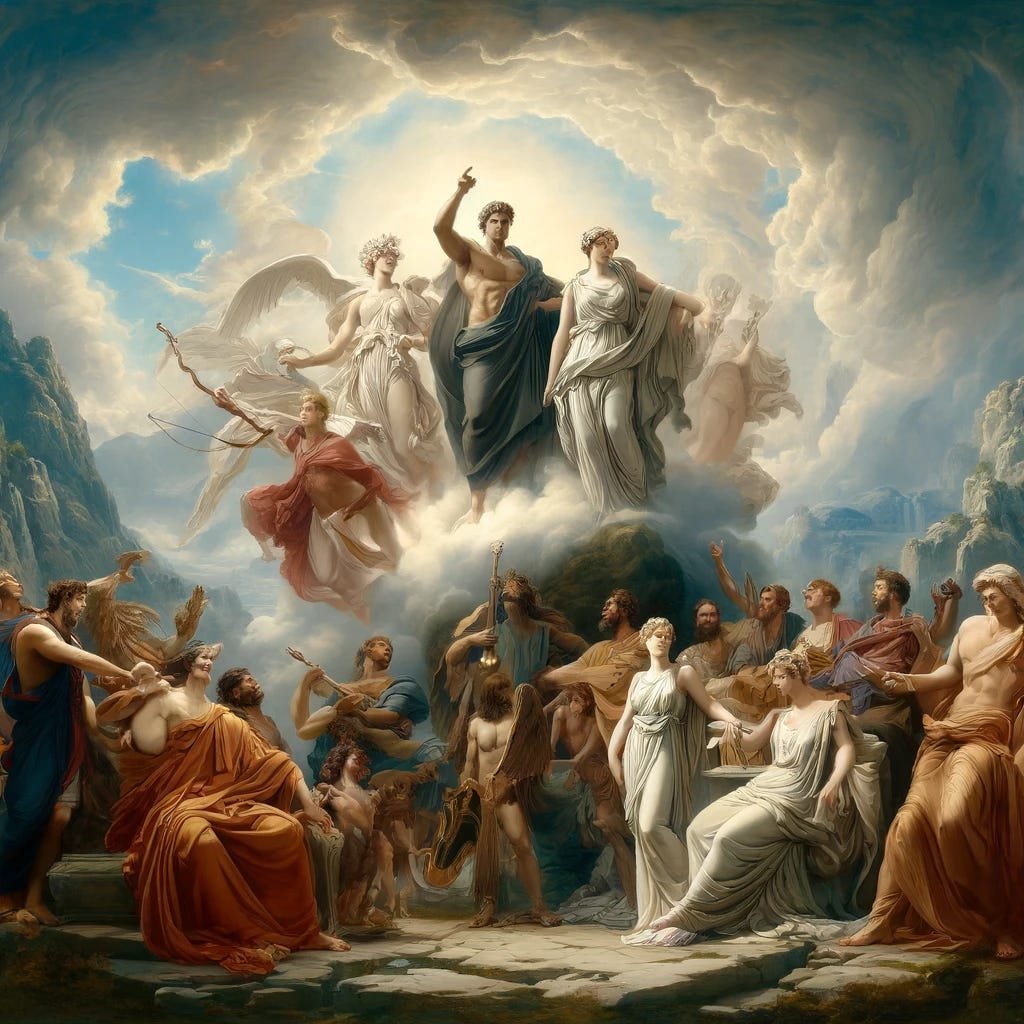
Goddess Hera is the queen of the gods in Greek mythology and the goddess of marriage, women, and childbirth. She is the wife and sister of Zeus and is often depicted with a crown and scepter, symbolizing her regal status. Known for her beauty and dignity, She is a protector of married women and played a significant role in myths involving family and loyalty. Her sacred symbols include the peacock, cow, and pomegranate.
Demeter is the goddess of agriculture, fertility, and the harvest in Greek mythology. She is the sister of Zeus and the mother of Persephone, whose abduction by Hades led to the creation of the seasons. Demeter is revered as a provider of nourishment and life through the earth’s bounty. Her sacred symbols include wheat, the cornucopia, and a torch, reflecting her connection to growth and the cycle of life.
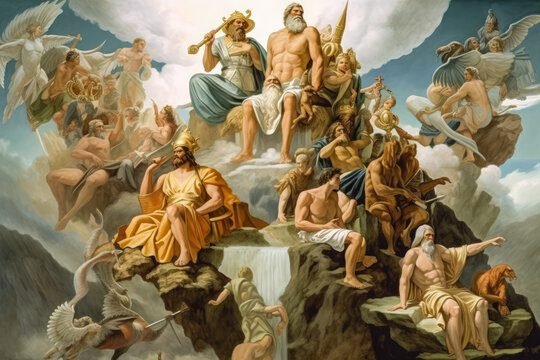
Aphrodite is the goddess of love, beauty, and desire in Greek mythology. Born from sea foam, she is associated with passion, romance, and attraction. Aphrodite played a central role in many myths, including the Trojan War, sparked by the Judgment of Paris. Her symbols include the dove, rose, and myrtle, reflecting her connection to love and sensuality.
Athena is the goddess of wisdom, war strategy, and crafts in Greek mythology. Born fully armed from Zeus’s head, she is known for her intelligence and justice. Athena is the patron goddess of Athens, symbolized by the olive tree. Her sacred symbols include the owl, shield, and spear, reflecting her roles as a protector and strategist.
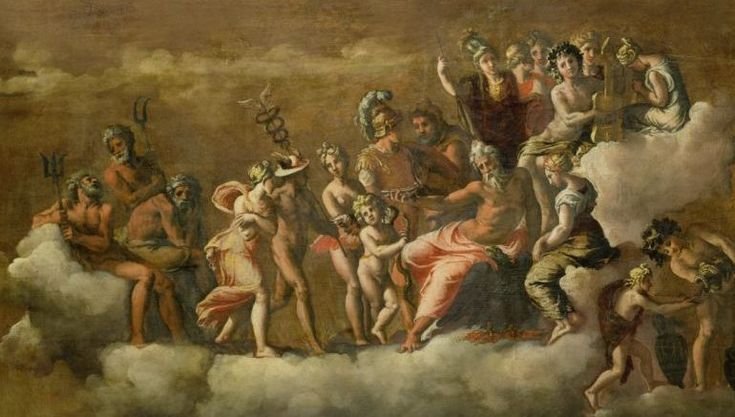
Artemis is the goddess of the hunt, wilderness, and the moon in Greek mythology. She is the twin sister of Apollo and a protector of young women and animals. Known for her independence and chastity, she is often depicted with a bow and arrows. Her sacred symbols include the deer, crescent moon, and cypress tree, emphasizing her connection to nature and purity.
Apollo is the god of the sun, music, prophecy, healing, and the arts in Greek mythology. The twin brother of Artemis, he is known for his beauty and versatility. Often depicted with a lyre or a laurel wreath, Apollo represents harmony, enlightenment, and inspiration. His sacred symbols include the sun, laurel tree, and raven, reflecting his roles as a bringer of light and knowledge.
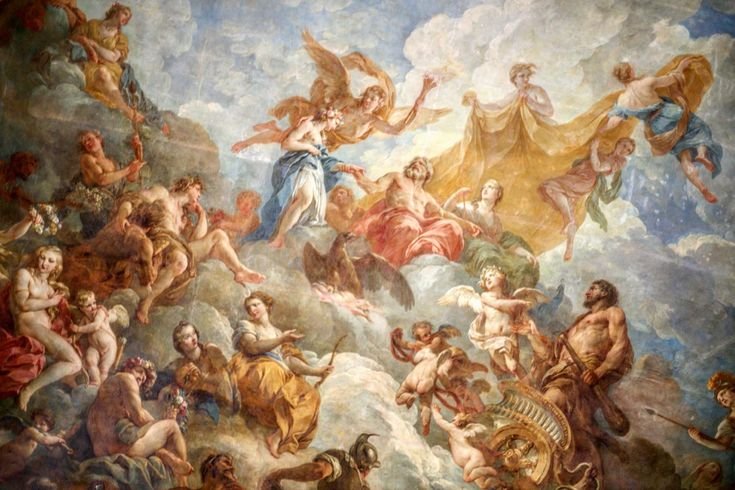
Ares is the god of war and violence in Greek mythology, known for his fierce and impulsive nature. The son of Zeus and Hera, he represents the brutal and chaotic aspects of warfare. Often depicted with a helmet, spear, and shield, Ares is accompanied by symbols like the vulture and dog, reflecting his connection to bloodshed and destruction.
Hephaestus is the god of fire, metalworking, and craftsmanship in Greek mythology. The son of Hera, and sometimes Zeus, he is known for his skill as a blacksmith and creator of divine weapons and artefacts. Despite his physical imperfections, Hephaestus is revered for his ingenuity. His symbols include the anvil, hammer, and forge, representing his mastery of the arts of creation.
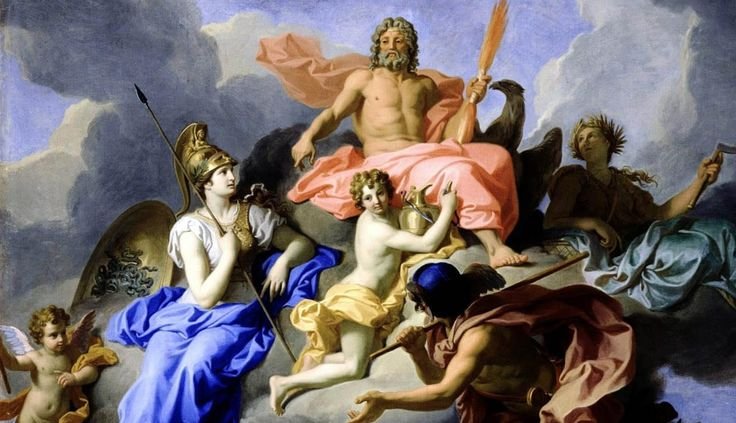
Hermes is the god of trade, travellers, thieves, and communication in Greek mythology. He is the messenger of the gods, known for his speed and wit. Often depicted with winged sandals and a caduceus, Hermes is also a guide to the underworld. His symbols include the tortoise, lyre, and rooster, reflecting his roles in commerce, mischief, and movement.
Dionysus is the god of wine, revelry, and fertility in Greek mythology. Known for his wild, carefree nature, he is often associated with celebration and ecstatic joy. As the son of Zeus and the mortal Semele, Dionysus embodies both divine and human aspects. His symbols include the grapevine, thyrsus (a staff topped with a pine cone), and leopard, representing his connection to nature, indulgence, and transformation.
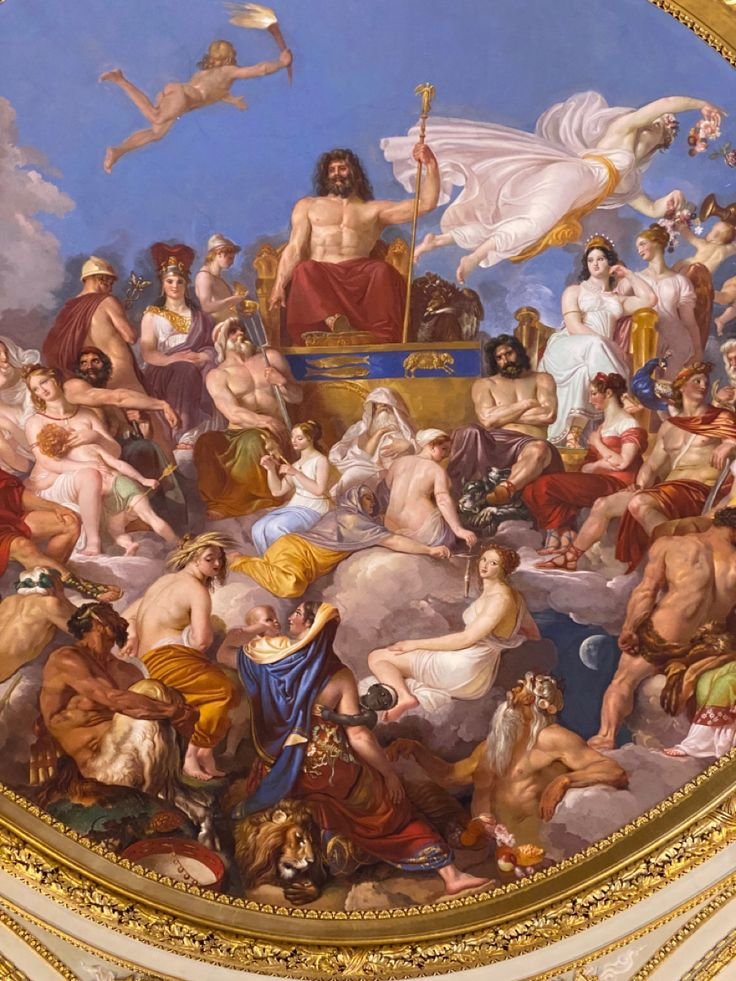
Although not part of the Olympians, there is one god, who is often addressed with holding as much influence as these gods do. That is the God of the Underworld, Hades. Hades is the god of the Underworld in Greek mythology, ruling over the realm of the dead. He is the brother of Zeus and Poseidon and is often depicted with a dark, shadowy appearance. Hades is associated with wealth, as precious metals and gems are found underground. His symbols include the bident, Cerberus (the three-headed dog), and the Helm of Darkness, representing his dominion over the dead and the unseen forces of the earth.
Greek mythology offers a fascinating glimpse into the lives and powers of the Olympian gods and their influence on both the natural and human worlds. Each deity holds unique attributes and stories that have been passed down through generations, shaping not only Greek culture but also much of Western thought. The myths of Zeus, Poseidon, Hades, and the others continue to inspire art, literature, and philosophy, reflecting timeless themes of power, love, justice, and transformation. These gods and their legacies remain central to the cultural heritage of Greece and the world at large.


